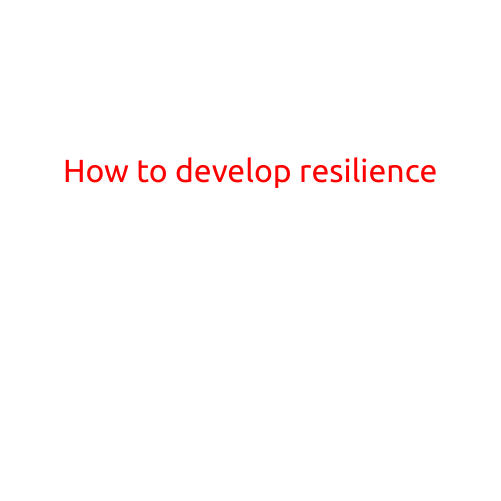
How to Manage Negative Emotions
Negative emotions are a natural part of the human experience, but they can be overwhelming and debilitating if left unchecked. Whether it’s anxiety, anger, sadness, or fear, negative emotions can impact our relationships, work, and overall well-being. In this article, we’ll explore the importance of managing negative emotions and provide practical tips on how to do so.
Why is it Important to Manage Negative Emotions?
Negative emotions can be a major obstacle to achieving our goals and living a happy, fulfilling life. When we’re consumed by negative emotions, we:
- Have difficulty focusing and concentrating
- Become withdrawn and isolated
- Struggle with motivation and self-esteem
- Experience physical symptoms such as headaches, fatigue, and digestive issues
- Strain our relationships with others
On the other hand, managing negative emotions can lead to:
- Improved mental health and well-being
- Increased resilience and adaptability
- Enhanced relationships and communication skills
- Better decision-making and problem-solving abilities
- Improved physical health and overall quality of life
5 Strategies for Managing Negative Emotions
- Recognize and Accept Your Emotions
Before you can manage negative emotions, you need to acknowledge them and accept them as a normal part of the human experience. When you try to suppress or deny your emotions, they can become even more overwhelming. By recognizing and accepting your emotions, you can begin to work with them, rather than against them.
- Practice Mindfulness
Mindfulness is the practice of being present and fully engaged in the current moment. By focusing on your breath, body, or surroundings, you can calm your mind and reduce feelings of anxiety, anger, and fear. You can try mindfulness exercises such as meditation, deep breathing, or yoga.
- Engage in Physical Activity
Physical activity is a powerful tool for managing negative emotions. Exercise releases endorphins, which are natural mood-boosters that can help alleviate symptoms of depression and anxiety. Activities such as running, swimming, or dancing can help you release pent-up energy and improve your mood.
- Practice Gratitude
Gratitude is the practice of focusing on the positive aspects of your life. By taking time each day to reflect on what you’re thankful for, you can shift your focus away from negative emotions and cultivate a more positive mindset. Try keeping a gratitude journal or sharing your gratitude with a friend or loved one.
- Seek Social Support
Social support is crucial for managing negative emotions. When you’re struggling with emotions, it can be helpful to talk to a trusted friend, family member, or mental health professional. Social support can help you feel heard, validated, and understood, which can be particularly important when you’re experiencing difficult emotions.
Additional Tips
- Practice self-compassion and treat yourself with kindness
- Challenge negative thoughts and reframe them in a more positive light
- Engage in creative activities such as art, music, or writing
- Take breaks and practice relaxation techniques such as progressive muscle relaxation or visualization
- Seek professional help if you’re struggling with persistent negative emotions
Conclusion
Negative emotions are a natural part of the human experience, but they don’t have to control your life. By recognizing and accepting your emotions, practicing mindfulness, engaging in physical activity, practicing gratitude, and seeking social support, you can manage negative emotions and cultivate a more positive, resilient approach to life. Remember, managing negative emotions is a process that takes time and effort, but it’s worth it for the sake of your mental health, relationships, and overall well-being.





